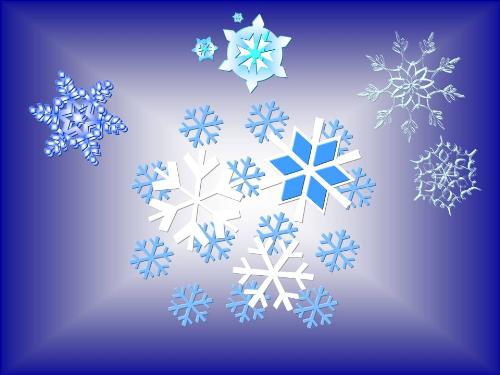How do they know that NO TWO SNOWFLAKES ARE ALIKE?
By w1z111
@w1z111 (985)
United States
March 16, 2007 4:16pm CST
I remember hearing that when I was a kid watching it snow outside my window. Somebody would pipe up and say "you know...there are no two snowflakes that are identical". "Oh!", I'd reply...not sure if I believed it or not! I guess I must've believed it at least 'in principle', because I have no idea how anyone could provide evidence of such a claim anyway...so why argue with it?!
But.......HOW DO THEY KNOW? Is it a mathematical formula? A study in random occurrences? Something else?
What do you think?
1 person likes this
2 responses
@paulskie (246)
• Philippines
16 Mar 07
I read about that once. What they are referring to when they say "No snowflakes are alike" is the "design" or "shape" of the snowflakes. They use a microscope for that.
The formation of snowflakes is a complex process. Hence, in theory, no snowflakes are alike. the possibility of two snowflakes having the same "design" or "shape" is next to zero.
However, a recent investigation about this may prove otherwise. This is according to this source:
www.itwire.com.au/content/view/8778/1066
Here are some references that might interest you:
http://ask.yahoo.com/20021004.html
www.livescience.com/forcesofnature/060113_snowflake_stamps.html
Have a nice day!
1 person likes this
@callybop (149)
•
16 Mar 07
Good point, and something I always wondered too.
Another thing that used to go through my mind is that they say that no fingerprints are identical either, which is obviously why its so useful in investigation...
BUT... what if someone DID have the same fingerprints as me... and they commited a crime! What if I got caught for it!!! And because of the general knowledge that no fingerprints are identical no one would believe me!!!
Or maybe I have an overactive imagination :D
@w1z111 (985)
• United States
17 Mar 07
NO...that's not a good thing! We'll assume fingerprints ARE unique to each of us (safer that way!). Hard to know for sure, but the numbers (odds) are still pretty good that it's possible to have 6 billion different fingerprint patterns because the patterns themselves are so complex and varied, leaving lots of opportunity for random differences.
Good points!
Thanks for the post.
1 person likes this







